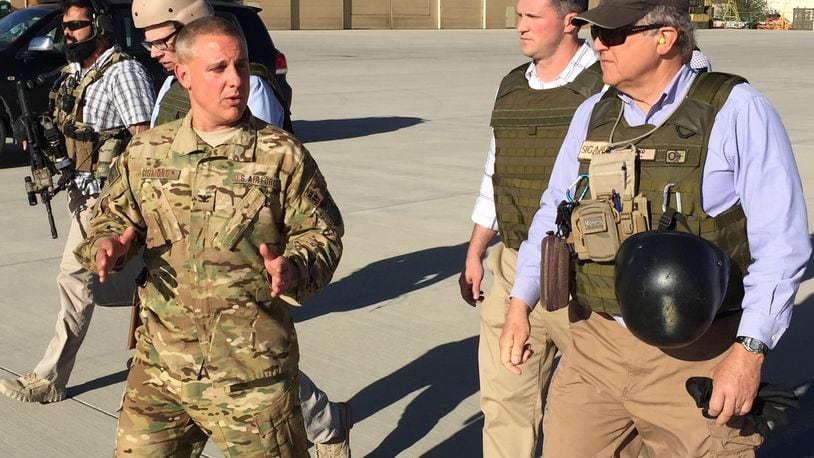“I guess people don’t realize that,” he added. “And I think people should realize that. We still are giving money to the Afghan people. We are trying not to, as much as possible, give money to the Taliban.”
That’s one of SIGAR’s oversight roles — to ensure that U.S. taxpayer dollars aren’t directed to the Taliban, the group that quickly took control of Afghanistan as the U.S. and its allies hastily withdrew by the end of August last year.
“That’s one of the issues we have right now with state aid,” Sopko told the Dayton Daily News.
The United States in recent days killed al Qaeda leader Ayman al-Zawahiri with a drone missile while he stood on a balcony at his Kabul home near the former U.S. embassy, according to U.S. officials.
Secretary of State Antony Blinken said the Taliban had sheltered the al-Qaida leader “after repeated assurances” that they would not.
Sopko said much of the U.S. money spent in the past year has been an effort to ease hunger and address health care needs in Afghanistan.
And there yet remains $1.8 billion in “authorized and appropriated money” that is still unspent, although Sopko assumes much of that will eventually be rescinded.
The Ohio native will oversee what is spent of that amount. Once his office does that and issues final reports, then “we will go out of existence,” Sopko said.
The SIGAR office also released a report last year detailing how the U.S. Air Force spent $549 million on aircraft for the Afghan Air Force, most of which were junked later at a scrap value of $40,257 — a project that involved officials at Wright-Patterson Air Force Base.
“The Air Force and Wright-Patterson Air Force Base I think has been very cooperative in the past,” Sopko said in his new interview. “We’ve had only great dealings with them. (Air Force) Materiel Command (based at Wright-Patterson) was very supportive in the past.”
Buckeye State roots
Sopko grew up in Cincinnati and Cleveland and started in legal career in Dayton, working for then-Montgomery County prosecutor Lee C. Falke.
He graduated from Case Western Reserve Law School in 1977 on a Saturday or Sunday and started work in Dayton on Monday, he recalled.
By Tuesday, he was in juvenile court trying cases before magistrates. He hadn’t even taken the bar exam, he said.
Sopko remembered living on Radio Road in East Dayton, walking to East Third Street and taking a trolley bus downtown to the prosecutor’s office each morning.
“I loved Dayton, Ohio. I loved the people down there,” he said.
“They gave me a break,” Sopko added, saying he had applied to many prosecutors’ offices across the country as a soon-to-be law school graduate, at a time when prosecutors hired staff often based on political affiliation and ties.
“(They) didn’t have to hire me. They didn’t know what political party I was,” he said.
Sopko was sworn in as SIGAR in July 2012, having been appointed to the post by President Obama.
Last month, U.S. Rep. Mike Turner asked President Joe Biden to cooperate with Sopko’s examination of taxpayer funded operations in Afghanistan.
The letter was prompted by what Turner called a failure by the State Department and the U.S. Agency for International Development (USAID) to provide “any meaningful documentation related to Afghanistan” in nearly a year.
“I am concerned that further delays will significantly obstruct SIGAR’s necessary oversight work,” Turner wrote. “I urge you to make all efforts to ensure that the historic cooperation between SIGAR and the Department of State and USAID recommence.”
Sopko said he is “cautiously optimistic” that Congress and administration agencies will support his work.
About the Author
